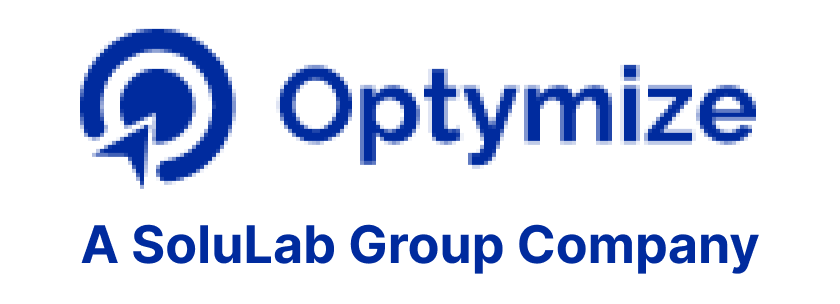Table of Contents
Introduction
You’re preparing to launch a recruitment drive to hire .NET developers or .NET Core developers. However, once you have received the applications and resumes, you must choose whether candidates are qualified enough to proceed to an in-person technical interview. This requires a technical screening process.
Many technical recruiters are unaware that screening entails more than simply skimming resumes. How come? On the one hand, it’s difficult to find good .NET developers, so you don’t want to pass on a candidate who has potential and strong coding abilities. On the other hand, you don’t want to schedule interviews with unqualified applicants. This is a waste of your IT team’s and your employees’ valuable time.
So, how can you screen the .NET programming skills of your .NET developer candidates to interview the best ones and eliminate the bad ones? The purpose of this guide is to demonstrate what matters in .NET technology and how to screen candidates efficiently and effectively.

Every software, whether desktop or web-based, requires a frontend and a backend to function correctly and execute user requests.
.NET is a software development technology that can provide a dedicated environment for developing, deploying, and maintaining business solutions.
Hiring a professional .NET developer is essential for creating business-oriented and data-driven .NET applications. However, many businesses need to be made aware of the primary .NET developer skills, which usually causes them to hire the wrong candidate and suffer the consequences later.
However, you can gain insight into the top .Net developer skills to focus on to ensure a quality application by reading this blog.
What is a .NET developer?
.NET is a framework for developing software and ecosystem created and released by Microsoft in 2002 with the goal of making desktop and web application development easier. By providing secure and simple ways to create an application or a website, the framework significantly speeds up the development process.
The .NET technology supports many languages, like C#, Visual Basic .NET, F#, and C++ .NET. Additionally, it provides .NET developers with a tonne of tools and frameworks that make it incredibly simple to develop a wide range of apps (web, desktop, and mobile), even those for the most complex enterprise needs. The key benefits of .NET are the framework’s maturity and reliability, tremendous support from the .NET development community, and easy integration with other Microsoft tools and products like Office.
Hiring a .NET developer will assist you in shortening development time and creating dynamic content-driven websites and applications. Let’s go over why and how .NET can help your business thrive.
What you should know about .NET and .NET Developers’ Skills?
We have compiled a list of the key .NET information that IT recruiters need to be aware of.
- Similar to the Java environment, knowing only one language—in most circumstances, C# well enough is simply not sufficient. To be a productive .NET developer, you need to be familiar with libraries and frameworks, like ASP.NET, MVC, or Entity Framework. These serve as the foundation for all significant commercial applications created with .NET.
- You should not rule out candidates who don’t know even one of the frameworks listed in the requirements. The .NET frameworks are often similar and candidates can easily migrate to the required framework if they have a decent knowledge of one of them. The idea and principles behind the library or framework should still be understood, even if they have no knowledge of it.
- What really matters and has real value for an employer is business experience. If it isn’t extremely useful, university-level .NET knowledge doesn’t add much to business coding. Education matters, of course, if you’re seeking a developer with junior .NET developer skills. But keep in mind that programming expertise, even non-commercial experience, can be considered. Find out if the applicant has worked on any open-source programming projects using the .NET framework.
Because .NET is widely in use by developers to create web and mobile applications, you should check to see what .NET developer skills your potential developer has and how much experience he has with .NET technology.
As employers, you should check that the developers you hire must be aware of the best unit testing frameworks for the .NET framework.
What Are the Differences Between the Required .NET Developer Skills for .NET and.NET Core?
Although the two frameworks are extremely similar, they differ slightly when we look at the specifics. There are differences between the .NET and .NET Core frameworks in terms of their libraries and components. Although a .NET developer shouldn’t have any issues using .NET Core, there are some technologies that can be very helpful in web services that are not supported by .NET Core, such as NET C++ programming languages and ASP.NET Core Forms.
When working on brand-new projects for startups where a product must be created entirely from scratch, developers use .NET Core. Some of the key .NET framework elements can be used by developers to create .NET Core applications. However, it cannot be done the opposite way around. .NET Core is also used by many well-known companies to create new modules or to completely rework existing programmes. However, in order to do this, businesses must hire a .NET developer who is knowledgeable in both the .NET and .NET Core technology frameworks.
Top 10 Senior .NET developer skills to look for while hiring

It is now time to understand what type of essential .NET developer skills one needs to have in order to provide the top interactive web apps and web services. Since .NET is well-known among developers to develop websites and applications, you must ensure what .NET programming skills your potential developer should have and what is his experience with .NET technology. As developers, one must know the suitable Unit testing frameworks suitable for the .NET framework.
However, you can gain insight into the top .NET developer skills to focus on in order to ensure a quality application by reading this blog.
1. Refactor Code
Yes, refactoring skills are a requirement when hiring a .NET developer. Every time refactoring is performed, the entire scope of the code selection is examined before the code is applied to the entire section. This also applies to cross-language code, which modifies code in the most intelligent way possible using this knowledge. A developer must start working on an application that already exists and may have substandard code. For the purpose of improving the code quality, he should be able to rearrange the code without changing the external behaviour.
2. Programming Language
A developer could use different languages with .NET to create the application. The most popular languages for developing .NET business solutions are C#, VB.NET, C++, J#, F#, Iron Ruby, and Python. Each language has its own set of modules and features.
C#, for example, is primarily used to create game apps, whereas VB is used to create web forms and services. As a result, when looking for a .NET developer, you should check their programming language proficiency. Aside from that, you must list your requirements, as this will assist you in selecting or shortlisting a suitable candidate who is fluent in the required language.
3. Databases
Begin by looking for .NET developers who are familiar with database technologies like MySQL, Microsoft Cosmos DB, and Microsoft SQL server. Indeed, we know that .NET developers work with a variety of data sets, so proficiency in all types of datasets is required to create optimized web pages.
When a developer is able to work with systems such as Entity Framework, his or her abilities grow exponentially. .NET developers don’t have to worry about the objects and relationships in the application database when using Entity Framework.
This is the most in-demand skill in the .NET development industry right now, making him the most sought-after professional. Knowledge of databases such as MS SQL Server or Oracle may also help you choose the right one.
4. .NET certificates for evaluating a .NET developer’s coding skills
In the .NET field, certificates are a little bit of a touchy subject. According to several businesses and experts, they are the best indication that a candidate has a thorough understanding of .NET. Others claim that exams mostly focus on exceptions and theoretical knowledge, and rarely evaluate any practical .NET abilities.
It is safe to assume that certificates do not always represent proof. Many excellent developers lack any because they don’t believe they are worthwhile. Others will attempt to “improve” their market position by passing a certification exam, even though they may not have any business experience. Having a certificate is undoubtedly preferable to not having one, but recruiters should keep in mind that it is more of a “good to have” than a requirement. The best indication of a candidate’s quality is their professional history and references.
Microsoft certificates are perhaps the most important when it comes to software development in .NET.
5. Data Security
The three primary fundamentals of cyber-security are ensuring data integrity, confidentiality, and availability. And all three are required during .NET development.
Every professional .NET developer should understand how to write code that is streamlined, clean, and secure in order to avoid a data breach. .NET provides modern authentication, authorization, and access control systems that can be difficult to configure for some applications.
As a result, you should always assess a candidate’s knowledge of .NET security controls. Furthermore, configuring HTTPS is the most fundamental security skill that every developer should have.
When hiring an engineer for .NET development, you must ensure that the applicant is capable of implementing appropriate security controls.
6. MVC in ASP.NET
Knowing how to use ASP.NET MVC allows a .NET developer to control every function of an application. The ASP.NET MVC framework has grown in popularity, displacing other professional frameworks. It’s open-source software that gives .NET developers access to client-side technologies, allowing them to create software quickly and efficiently.
7. Azure
ASP.NET is the best option. Microsoft has its own cloud platform called Azure. It is also one of the world’s most popular cloud platforms.
As a result, the demand for .NET developers who understand how to use its functions is increasing by the day. The cost of Azure services is determined by the resources required for the project and the amount of computing power used.
As a result, even after the app is deployed, software development may incur additional costs. Because some developers lack the time to master the solutions and web technologies included in the Azure package. These new ideas may not always make it easier to develop the most user-friendly software.
8. Frameworks for Unit Testing
Testing the product is critical, and unit testing is especially important in SCRUM and test-driven development. The product is tested here for every functionality and line of code that has been added to it. So that you know where it went wrong at a very early stage of development, which is far superior to discovering that there are some issues in the product after it has been completed.
There is no way of knowing what went wrong the second time. It is a waste of both time and resources. As a developer, you should also be familiar with the frameworks and other tools that will be required for the project’s development. Create
9. Working Knowledge of SCRUM
10. Budget creation
When developing new software, .NET developers can use cost-effective measures thanks to their understanding of budget and finance management. Before starting a new project,.NET developers may create budgets to determine what resources they will need and the scope of the project, as well as to set aside funds for future projects.
Developers must review their spending habits during the construction process to ensure they are not exceeding their budgets. They may also outline the financial assistance they require and submit it for review to upper management.
Additional details in a CV that can demonstrate the developer’s .NET skills
The following points should be taken into consideration while you study a candidate’s CV. They might imply that your prospect will be useful to your IT staff.
1) Experience working on major projects, especially handling lots of data. This implies that the candidate is likely already familiar with how to address problems that might arise in any IT project.
2) Attending conferences and programming meetups. This suggests that the applicant has a higher-than-average interest in emerging trends and may be a passionate and talented developer.
3) Participation in open-source programs. This is a signal that the applicant most likely possesses above-average knowledge of .NET technology and would do well in any project.
.NET Interview Questions to Ask
It can be challenging to accurately assess a candidate’s Dot NET developer skills based solely on their resume. Because of this, IT recruiters frequently use phone or video interviews to learn more about their candidates. It is important to carefully consider the questions you want to ask because if the prospect performs well, the IT team will invite them for an on-site technical interview.
Depending on the role you are hiring for and the particular skills you wish to check, the questions themselves may change.
1. What is object-oriented programming (OOP), and how does it relate to the .NET Framework?
OOP is an abbreviation for object-oriented programming. A good answer to this question would be that the .NET Framework supports OOP languages such as Visual Basic.NET, C#, and C++. (F# provides support for functional programming as well.)
OOP allows .NET developers to create classes with methods, properties, fields, events, and other logical modules.
2. What exactly is encapsulation?
Encapsulation is one of the four basic features of OOP and refers to the inclusion of methods and data required for the object to function within a program object. Candidates should mention that encapsulation protects data from unauthorized access by binding code and data in an object, which is the basic, single self-contained unit of a system.
3. Explain what inheritance is and how it works in .NET?
In overall OOP terms, inheritance means that a class can be based on another class, with the child class inheriting the parent class’s attributes.
For example, programmers can create a class called Vehicle, then create child classes called Truck, Car, and Motorcycle, all of which inherit Vehicle’s attributes.
4. What exactly is the distinction between an abstract class and an interface?
As a base class, an abstract class is always used. It contains some abstract/virtual members that inheriting entities must implement, as well as a partial implementation of functionality.
Job candidates may mention that this class can also declare fields for extra credit. Developers are unable to create an object from
5. In .NET, what is a delegate?
A delegate is a type that contains a method reference. Delegate objects can then be passed to code that calls the method according to the method signature, removing the need for the developer to know which method is being invoked at compile time.
What is the average .NET Developer salary?
As of October 27, 2022, the average Senior .NET Developer salary in the United States is $98,158, with a salary range of $84,929 to $112,610. Salary ranges can vary greatly depending on a variety of criteria, including schooling, certifications, supplementary talents, and the number of years in your career. Salary.com has more online, real-time salary data than any other website and can help you identify your exact wage objective.
In the United States, the average yearly income for a .NET developer is $99,287.
Conclusion
Finally, we can state that .NET developers are in high demand. And the abilities must be known ahead of time in order to get the best results from their knowledge and skill set. The theoretical knowledge, as well as the technical .NET Developer skills of valued .NET professionals, should not be overlooked. NET developers easily create innovative and secure web applications.
Choose those .NET Developers’ resumes which have strong soft skills and communication skills; that will be beneficial in the long run.
With our experience, we developed a list of the most important factors to consider when selecting and hiring the best candidates for your project. It is also a checklist for developers to learn which technologies they need to know







